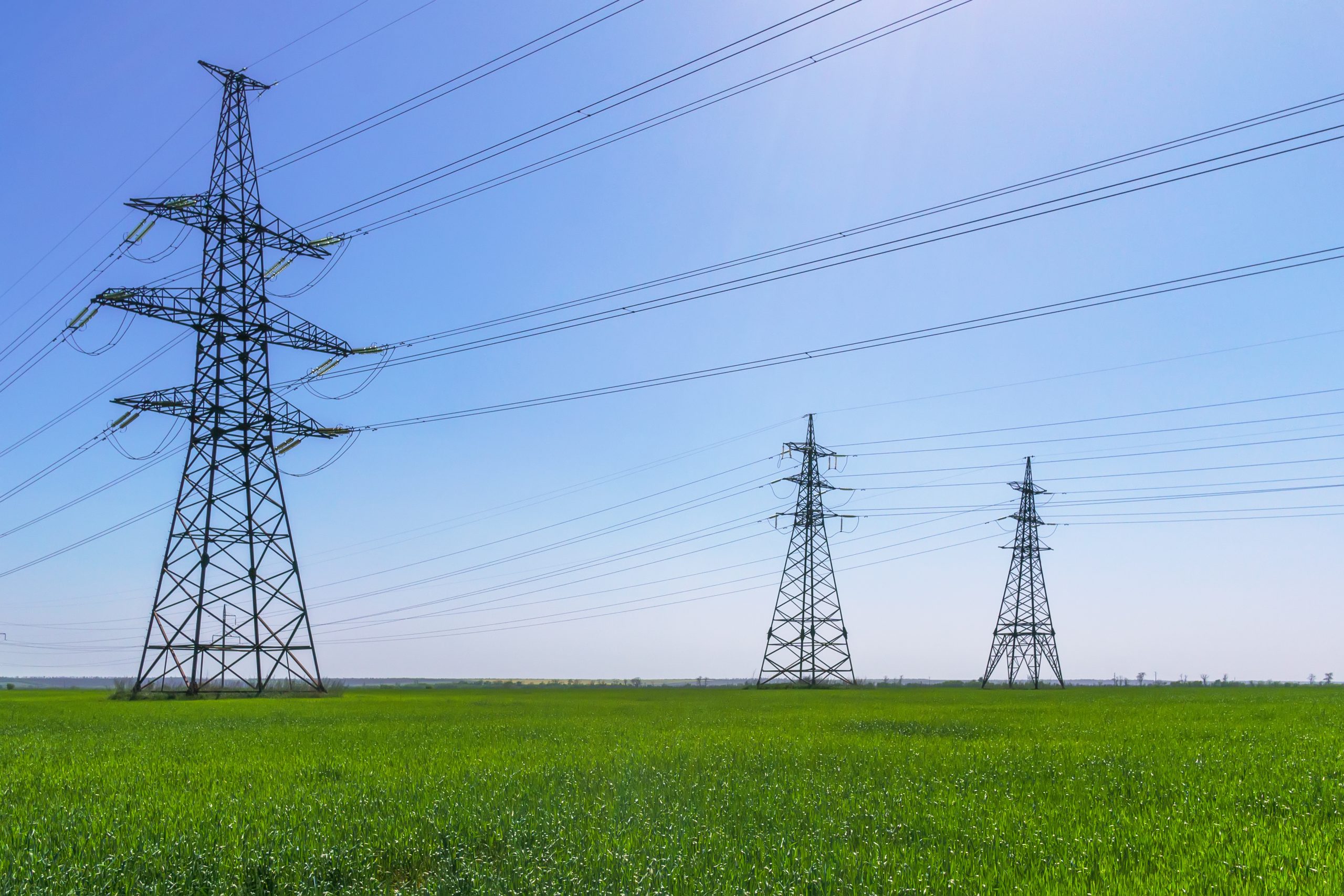The federal Department of Energy has announced large power transmission lines planned in separate projects, including the states of Kansas and Oklahoma, have ended.
The decision to remove the Midwest Plains proposed transmission line from the National Interest Electric Transmission Corridor project was announced Dec. 16 by U.S. Sen. Roger Marshall, R-Kansas, in a video press conference. Fellow Kansas lawmakers U.S. Sen. Jerry Moran and U.S. Reps. Tracey Mann and Ron Estes also confirmed the decision.
Marshall said the Midwest Plains project started with an amendment to President Joe Biden’s Inflation Reduction Act that would have taken renewable energy from Dodge City ultimately to places as far away as Chicago and St. Louis. What Kansans objected to was that the federal government could bypass the state and local regulatory processes and use eminent domain to make it happen. The proposed project was a 5-mile wide corridor going through 14 counties in Kansas as part of a 780-mile-long east-west geographic area that also included parts of Missouri, Illinois and Indiana and portions of an existing 345 kilovolts transmission facility.
Also, the Federal Energy Regulatory Commission could have assigned Kansas taxpayers with 80% of the transmission lines costs, and that was also reversed, which was also an important win, Marshall said. Kansans voiced their opposition.
“Kansans have spoken,” he said.
Marshall remembered a hearing that more than 500 people attended to voice their opposition. Shortly after that, a similar meeting in Barton County had the same result.
The National Interest Electric Transmission Corridor is not tied to Grain Belt Express project for wind and renewable energy projects that are going on in the High Plains, and they do not involve the federal government’s role in eminent domain, Marshall said. That project is smaller in scope, with transmission lines and lease agreements negotiated with landowners, with oversight at the county levels and state regulators.
The Kansas Corporation Commission on Dec. 19 issued a news release to clarify the Grain Belt Express project.
“The Grain Belt Express transmission line, approved by the Kansas Corporation Commission in 2011, will continue through the state regulatory process.
While the route of the Grain Belt Express project fell within the borders of one of the proposed DOE corridors, its status as a previously approved project has not changed and is moving forward. In addition, without a federal corridor designation, state jurisdiction and approval processes remain intact for the Grain Belt Express and the KCC will continue to review any potential future projects. Federal “backstop” siting authority or the use of federal eminent domain are not an option. The DOE’s decision does not reverse the previously announced $4.9 billion conditional loan guarantee awarded to the Grain Belt Express project on Nov. 25.”
In September 2024, Sens. Moran and Marshall and Rep. Mann introduced legislation to prevent the federal government from using taxpayer dollars to seize property for the National Interest Electric Transmission Corridor. The members also secured an agreement from DOE to extend the comment period regarding the NIETC proposal in Kansas.
The three lawmakers noted that Kansans were upset that the federal government could bypass state regulators. Mann said Kansans were displeased with the DOE’s overly vague proposal and the lack of engagement with landowners who would be potentially impacted by it.
Moran said the message was clear that the federal government cannot take action to overrule stage regulators and was an example where decisions should be left to Kansans and not in Washington, D.C.
No Delta Plains project
The Delta Plains project in Oklahoma also was ended by the DOE.
Oklahoma House Speaker-elect Kyle Hilbert confirmed the proposed Delta-Plains National Interest Electric Transmission Corridor will not proceed in its designation process. This decision marks a significant victory for Oklahoma communities and reinforces the power of grassroots advocacy and local input, he said in a news release.
The Delta-Plains potential NIETC was an approximately 645-mile-long geographic area, ranging in width from 4 to 18 miles, crossing Oklahoma from its western to eastern border, with a fork near Tulsa, and continuing into Arkansas.
“This announcement is a testament to the voices of Oklahomans who stood together to defend their land, livelihoods and local autonomy,” Hilbert said. “The proposed transmission line would have imposed an unnecessary burden on our communities without clear local benefits, and we are pleased that the Department of Energy has recognized the concerns raised by our citizens.”
The proposed Delta-Plains NIETC had drawn widespread controversy from landowners, who raised concerns about its potential impact on property rights.
“We will continue to monitor developments and advocate for policies that align with our state’s values and priorities,” Hilbert said.
Three projects by NIETC will tentatively move forward—Lake Erie-Canada Corridor (parts of Lake Erie and Pennsylvania); Southwestern Grid Connector Corridor (parts of Colorado, New Mexico and Oklahoma); and Tribal Energy Access Corridor (parts of North and South Dakota, Nebraska and five tribal reservations). The DOE has said it will continue with its planning process and will include seeking public comment on those projects.
Dave Bergmeier can be reached at 620-227-1822 or [email protected].




